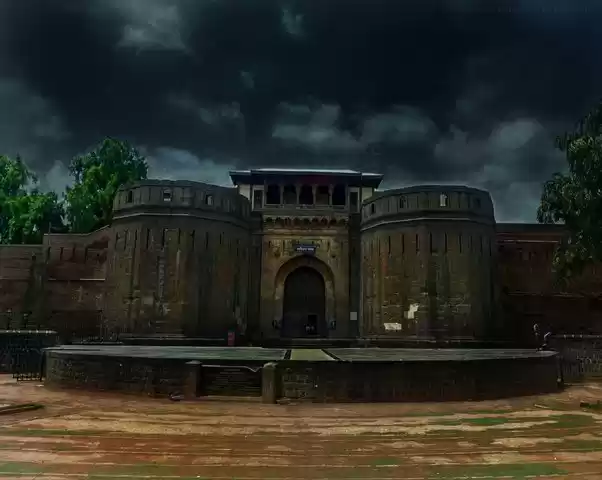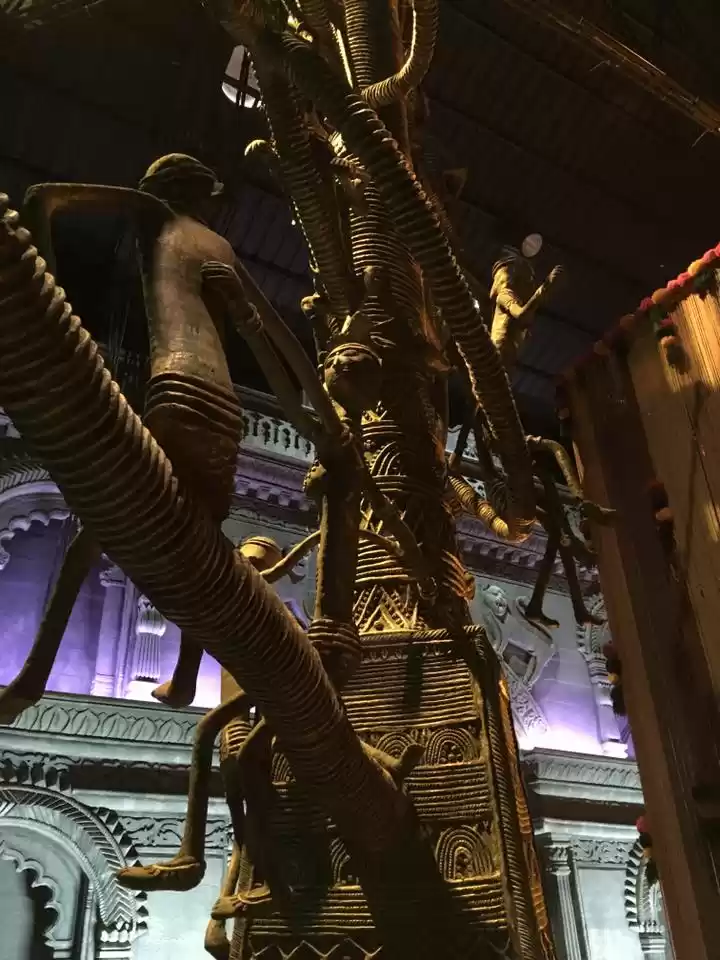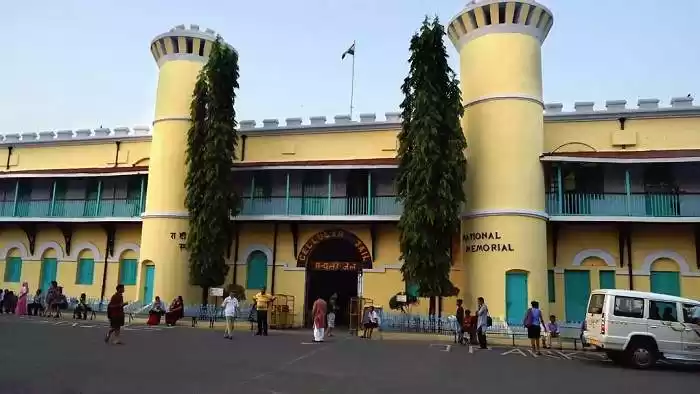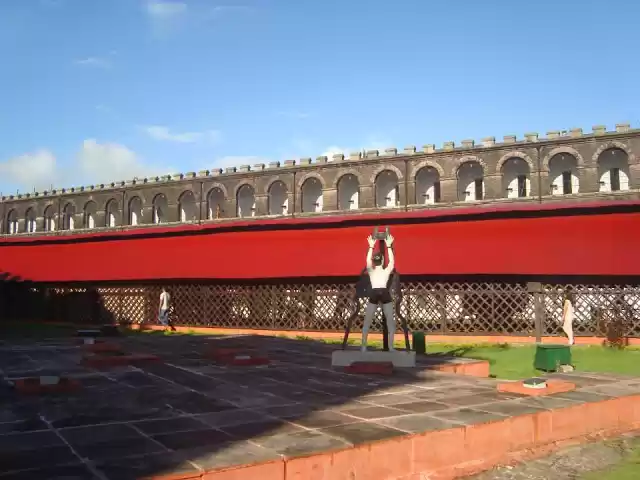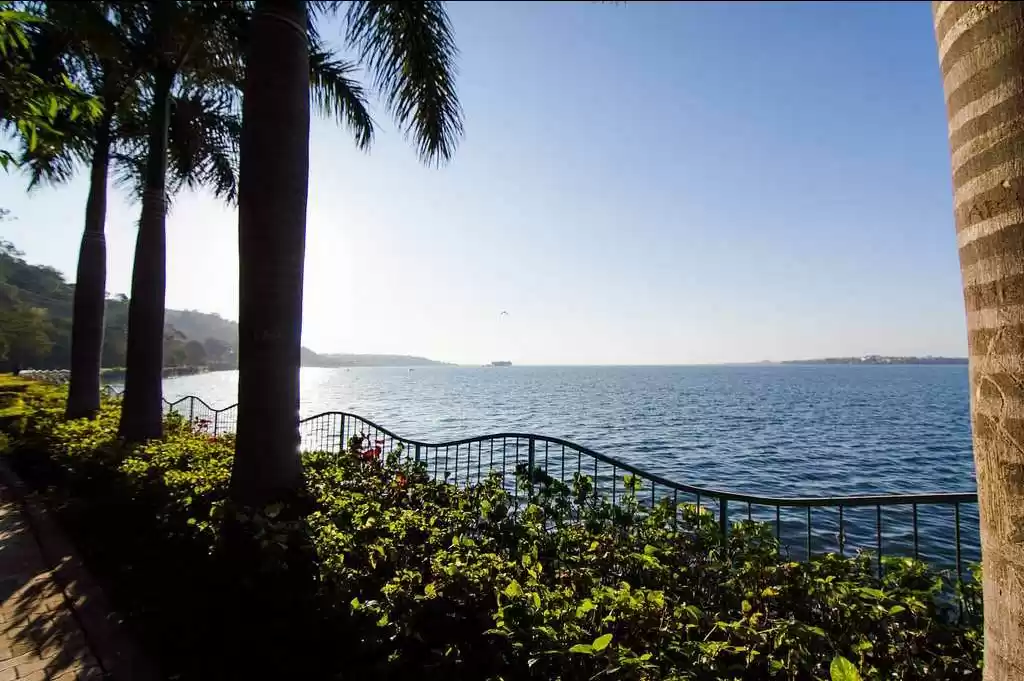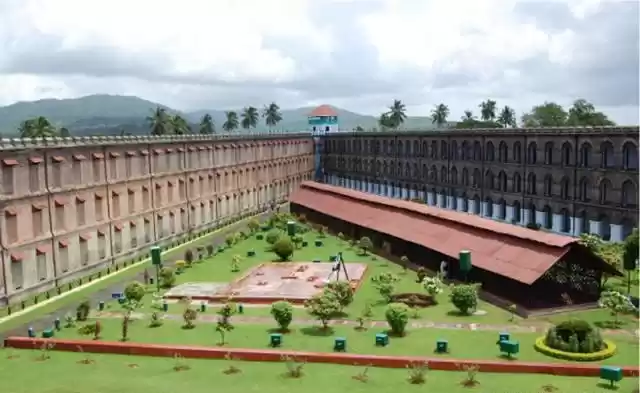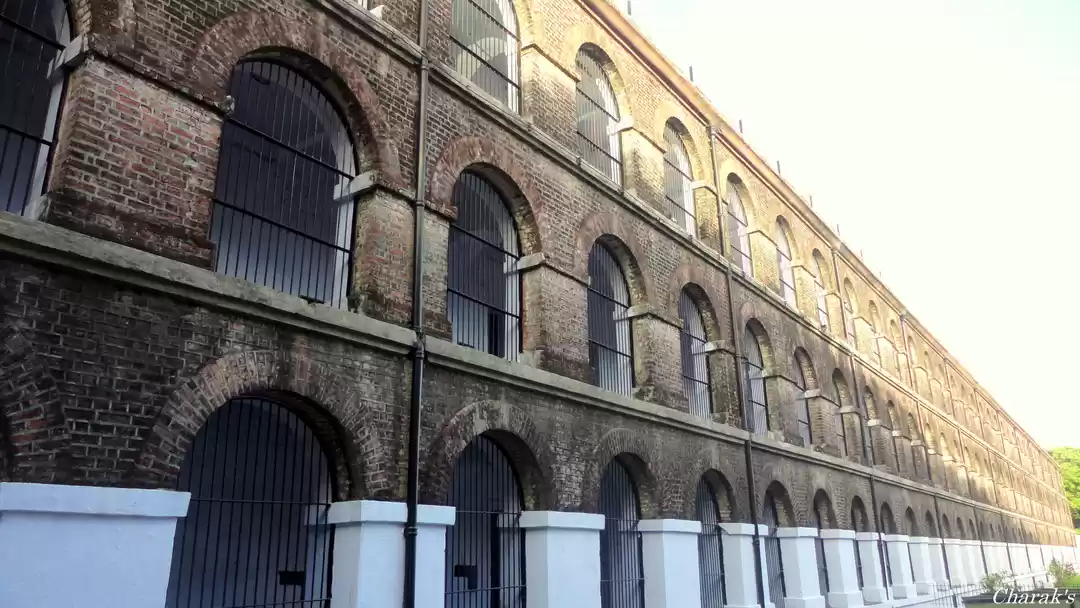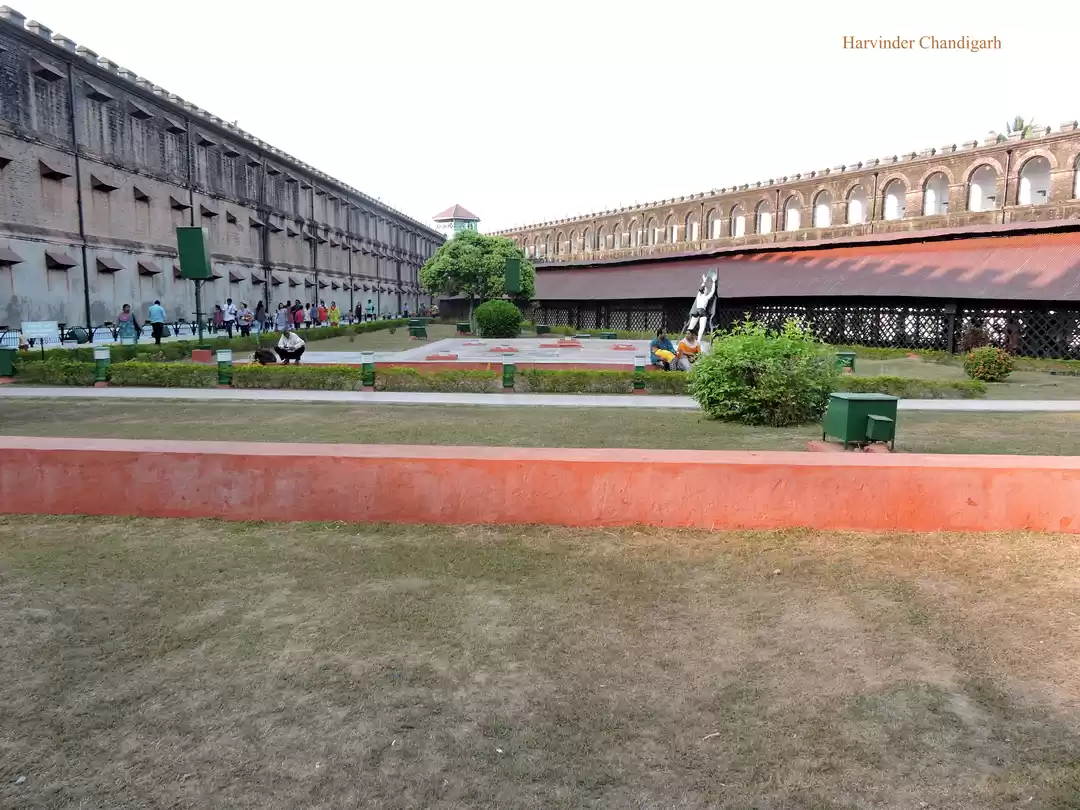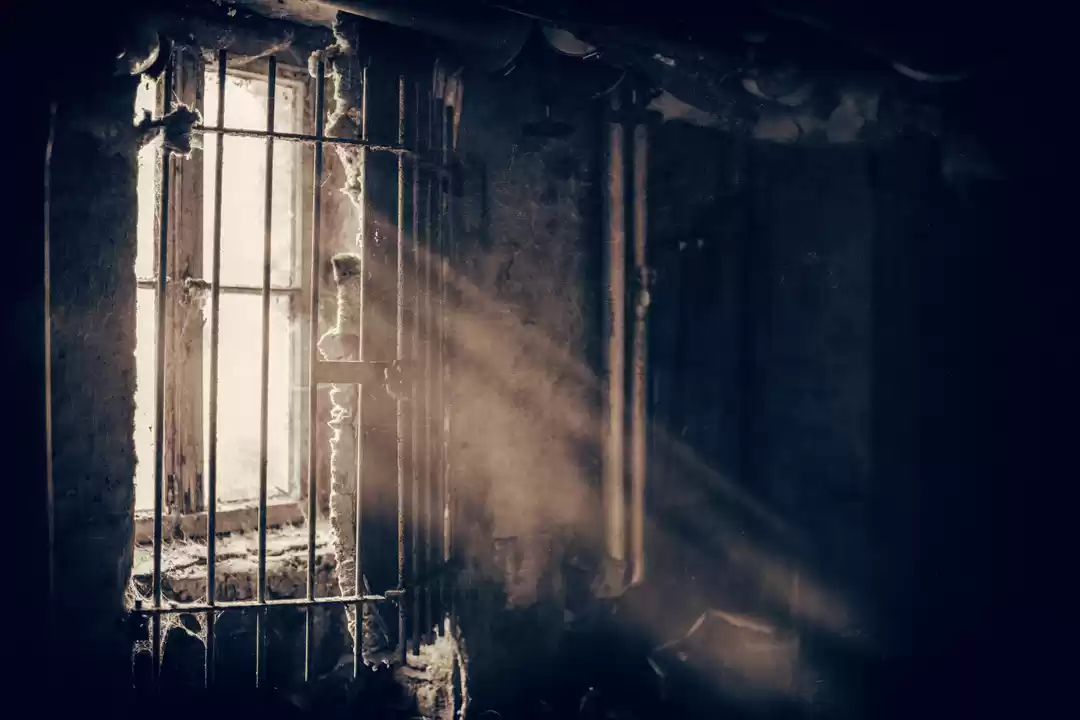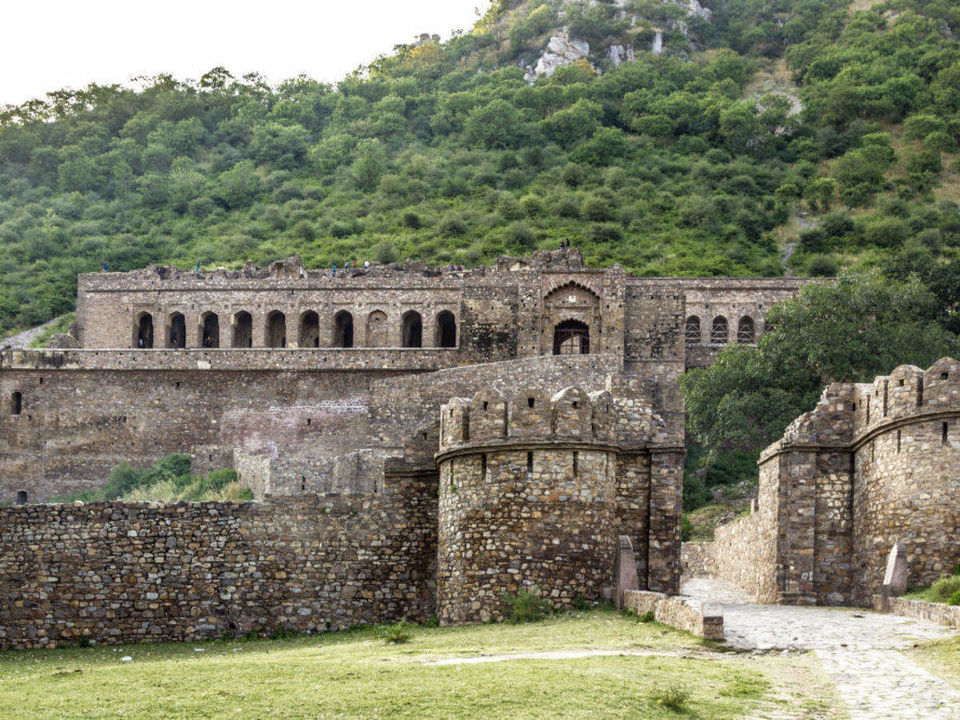
Travel does not always lead you to beautiful beaches, heartwarming mountains and historic monuments. Tourism to some places, or spots is mostly to keep alive the memories of the heart wrenching, painful incidents of death and tragedy associated with these places. Most of these places have history connected to them, which are significant in a country or culture, due to their dark and painful nature. Every country has their share, so do we Indians. India has a fairly heavy share of dark areas of tourism, owing to our turbulent history ranging from the early and medieval invasions, and the British era, post independence and even in recent times. I am sharing few of the places whose stories are not for the faint hearted.
1. Cellular Jail (Andaman Islands)
Every Indian is aware of the history of the Cellular Jail or rather the term "Kalapani". The cells of this jail is a living witness to the horrors and struggles faced by some of the bravest sons and daughters of India, as they were imprisoned here in the dreaded prison during the British Rule. The tortures and deaths meted out to Indian prisoners here are bloodcurdling.
Post Independence this jail has been turned into a memoriam and museum, to remember those souls which were lost here. The cells of the freedom fighters remind us of our dark history during the British rule and the conditions our freedom fighters went through.

2. Jallianwala Bagh (Amritsar)
Another remembrance of the Colonial past, this is perhaps one of the most iconic and horrifying site of sacrifice by hundred of innocent, unarmed Indians, children, women and the aged included. The British troops led by General Dwyer opened fire upon a gathering of innocents on the day of Baisakhi. Many fell, some dropped to their death within the field.
After we got our independence, the dreaded place was converted into a memorial for those who fell, as well as a museum. A walk across the narrow alleyway which leads to the bagh, will send a shiver down your spine as you imagine the screams and gunshots of those who met their gruesome end.

3. Kuldhara (Jaisalmer)
This seems like a plot perfect for a bollywood horror movie. Originally a group of around 80 villages, and settled with Indigenous Paliwal brahmins, this village is said to be abandoned overnight some 200 years ago. No one saw the Paliwals again, nor does any record of them resettling somewhere else exists. Although several supernatural explanations were formed, yet it is widely believed that it was result of the Diwan(Prime Minister to the king) levying high taxes and a poor water supply.
Whatever may the reasons be, the village has a strange, creepy and haunting aura to itself. The ruins throw an eerie atmosphere around itself.

4. Roopkund - Lake of Skulls (Uttarakhand)
No certain explanation can be given about the several 100 human skeletons that can be seen, once snow melts in the otherwise beautiful Roopkund lake in Uttarakhand. Located about 5000 meters above sea level, it makes an ideal trek destination. However the presence of the skeletons is quite bizarre. Scientists comes to the conclusion that these skeletons might belong to a settlement of about 200 ancient tribal Indians of the 9th century. However no explanation till date exists about how these people die, or what lead to the circumstances of their watery grave in the lake.

5. Bhangarh (Alwar)
The name of Bhangarh is very famous amongst Indians, not just as a massive fortification but also as one of the most haunted spots in India. Even if the supernatural occurrences, or accounts are ignored, the fort has been witness to some really horrible events. Dating several century back, this fort was built by ruler Raja Bhagwant Das for his younger son Madho Singh. Several theories exist, amongst which some speak about the cursed nature of the monument. It is said, that after sundown, even birds don't flutter in the compound. Site of several accidents, Archeological Survey of India has prohibited entry to the area between sunrise and sunset.
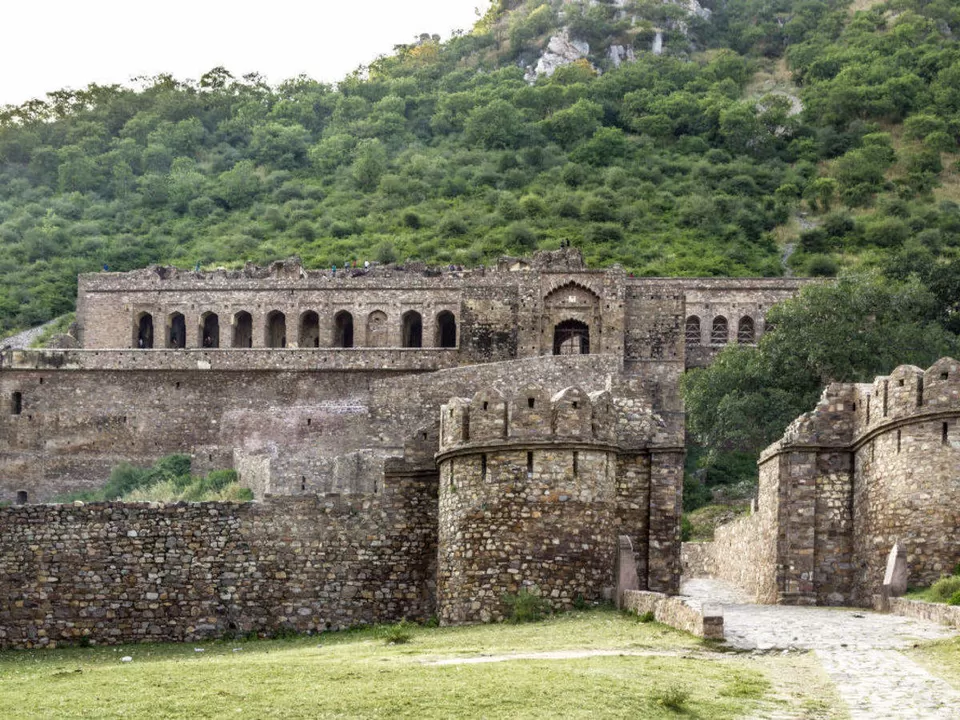
6. Taj Palace Hotel (Mumbai)
The Taj Palace Hotel or simply, the Taj is a beautiful monument, heritage hotel in Mumbai overlooking the gateway of India and the Arabian sea. It is one of the most famous, 5 star heritage hotels of India. However, since 2008, this heritage monument holds one of the most painful reminders in modern day India. The Taj was one of the target during the ghastly 26/11 Terror attacks of Mumbai where Pakistani Terrorists rained down bullets and took the life of several innocents, both Indian and foreign. Since the attacks the hotel has been renovated, but the horrors and pain of that fateful night will live on, for generations to come.

7. Union Carbide Plant (Bhopal)
Site of one of the most disastrous industrial accidents of India, the Bhopal gas tragedy claimed the lives of thousands of people. The leak of 42 tons of Methyl Isocyanide wrecked havoc as it attacked the respiratory system of the population living close to the area. Several years have passed since this disaster. The abandoned plant is open for visiting, infact several individuals from Bhopal organizes walk around and tours of the plant. The abandoned plant itself throws a gloomy, haunting shadow which resembles the Pripyat town of the Chernobyl Disaster.

So clench your hearts as you visit these places. Make sure to maintain the decorum of these places, especially the ones connected with historical pains and tragedy. The places like Cellular jail, Jallianwala bagh, Union carbide holds deep cultural, political and historical values for the locals as well as Indian population in general. So, make sure you conduct your visit in a respectful manner as you tread along these places.
If you want to hear more from me, do follow my Instagram feed and also my Tripoto stories.
Think we missed out on something? Tell us about it in the comments below. Or write about it here on Tripoto and earn Tripoto Credits!














